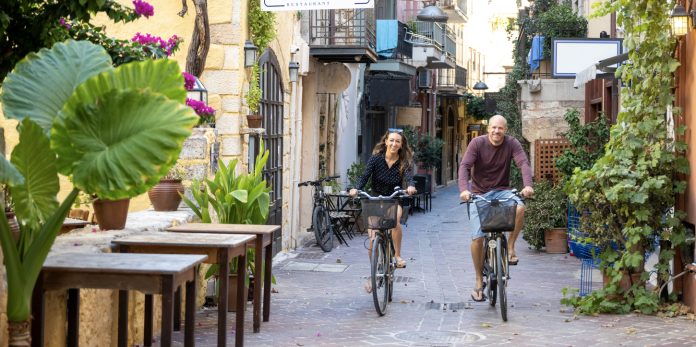Ana Drăguțescu, Head of Sustainable Mobility at ICLEI Europe, discusses how to tackle sustainable mobility challenges in urban areas from the ICLEI Europe perspective
The European Union’s (EU) new “Clean Industrial Deal” is designed to position Europe as a leader in sustainability, resilience, and competitiveness, with a specific emphasis on transforming the transport sector. To achieve this, ongoing efforts will be required to meet the climate-neutrality targets of vehicles and accelerate the transition to more sustainable modes of transport, such as cycling, as outlined in the EU Cycling Declaration.
Beyond simply embracing cleaner technologies, this journey aims to create mobility solutions that benefit citizens and businesses alike. The key to success lies in multi-level cooperation across the EU, its Member States, cities within them, and the private sector.
Today, cities experience unprecedented levels of traffic, resulting in excessive levels of air pollution, noise, greenhouse gas emissions, congestion, and accidents. Cities must work together, sharing knowledge and innovation to improve mobility and the quality of life of their citizens. Initiatives such as multimodal hubs and digital services offer promising solutions, but their success depends on continuous investment and supportive policies.
Supporting cities with their mobility transition
ICLEI Europe is at the forefront of helping cities transition to sustainable, citizen-centred mobility. We advocate for urban planning that prioritises non-motorised transport, promotes green mixed-use neighbourhoods, and fosters public transport improvements. Our work also extends to supporting the adoption of electric and shared mobility solutions in an effort to lessen reliance on cars in a socially inclusive and responsible way.
As a global network representing over 2,500 local and regional governments, ICLEI has the unique ability to influence sustainability policy and drive local action towards zero emission, nature-based, equitable, resilient, and circular development. “Our main goal is to create liveable cities featuring integrated, multimodal transport systems that prioritise space for people over that which is allocated to cars.”
Leveraging knowledge through European networks
The transition to sustainable mobility is not a journey cities can undertake alone. Collaborative networks, such as CIVITAS, and initiatives like the EUROPEANMOBILITYWEEK, serve as examples of how progress may be fuelled by shared knowledge. Since its inception in 2002, CIVITAS has provided a platform for cities to exchange experiences and expertise, promoting political commitment and equipping municipalities with the tools needed to integrate mobility into their decarbonisation strategies.
Similarly, the European Commission’s flagship awareness-raising campaign on sustainable urban mobility, European Mobility Week, is annually held from September 16th to 22nd. It encourages cities across Europe to prioritise sustainable transport. The initiative concludes with a car-free day, which reminds us of the potential benefits of lessening our reliance on private cars. ICLEI is honoured to support this initiative as a long-time partner.
Climate and sustainability: Walking the talk
ICLEI Europe’s cities and local governments have taken bold steps to adopt integrated climate and sustainability strategies. Through partnerships with businesses and civil society, we aim to ensure that all relevant local parties take ownership of the transformation. For instance, we also walk the talk through the Aalborg Conditions, based on a continuous European Sustainable Cities movement over the past 30 years in response to global and European agreements and policies.
The Conditions call for Shared Governance, Integrated Finance and a Cohesive Transition. The Aalborg Conditions were formally presented on 1-3 October 2024 as part of the 10th European Conference on Sustainable Cities & Towns, organised by ICLEI Europe and the City of Aalborg (Denmark).
Cities cannot achieve these goals in isolation. To fully exploit the potential of sustainable mobility, national governments and the private sector must form genuine, long-term partnerships with local authorities. By establishing a supportive framework, we can work together to create the conditions for cities to thrive, thereby shaping a more sustainable and competitive Europe.











